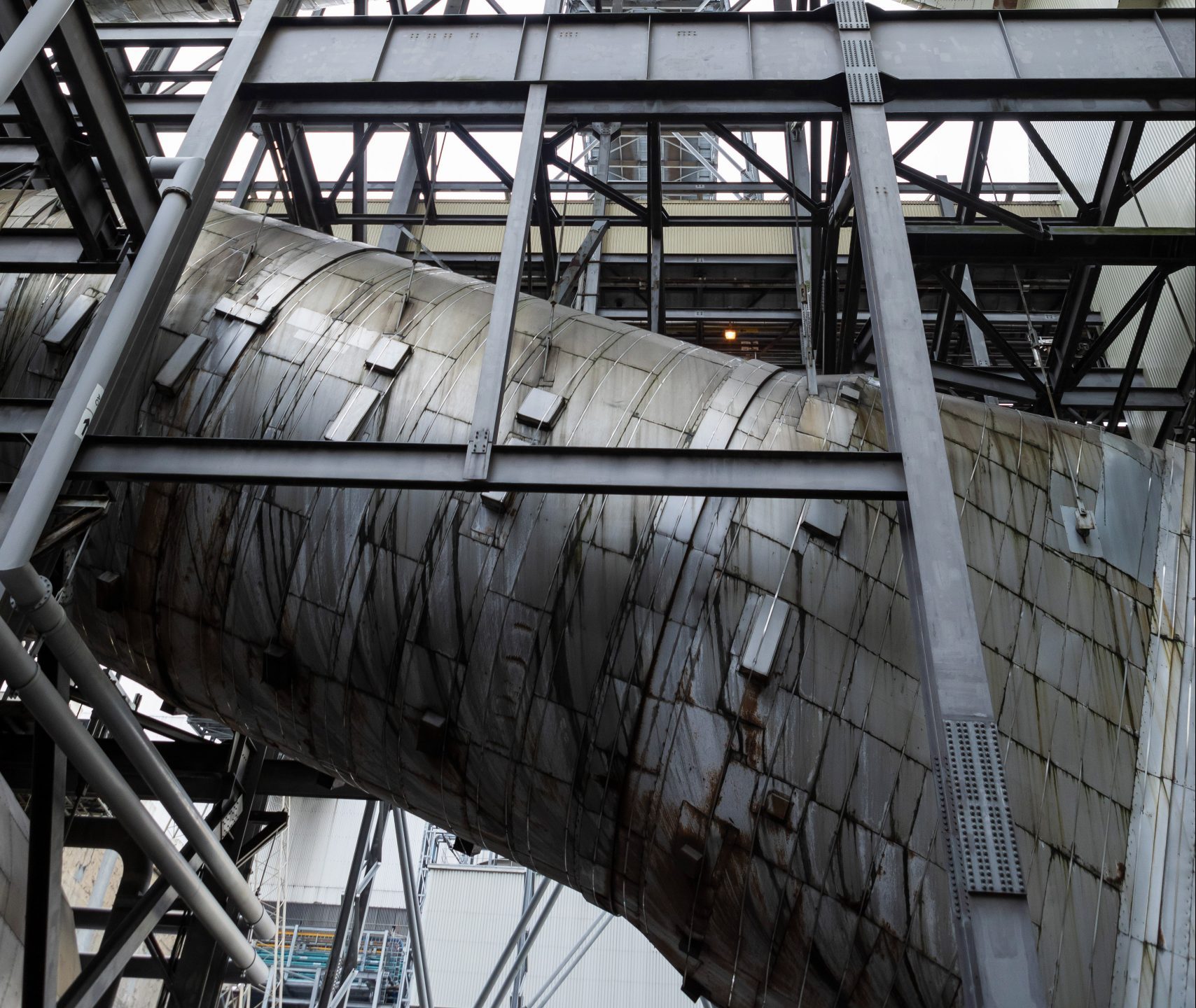
-
A new bioenergy with carbon capture and storage (BECCS) pilot facility will be installed within Drax’s CCUS Incubation Area in the autumn.
-
The pilot facility will enable Mitsubishi Heavy Industries (MHI) to demonstrate its BECCS technology can be used at scale and help deliver against the UK’s zero carbon targets.
-
The new MHI BECCS pilot will enhance Drax’s technical understanding for delivering negative emissions at the UK’s largest renewable power generator and help the energy company to drive forward its world-leading ambition to be carbon negative by 2030.
Drax Group and Mitsubishi Heavy Industries Engineering, Ltd., part of Mitsubishi Heavy Industries Group (MHI), have agreed a new bioenergy with carbon capture and storage (BECCS) pilot project at Drax Power Station which will get underway this autumn.
The pilot will test MHI’s carbon capture technology – marking another step on Drax’s journey towards achieving its world-leading ambition to be a carbon negative company by 2030.
MHI’s 12-month pilot will capture around 300kg of CO2 a day for the purpose of confirming its technology’s suitability for use with biomass flue gases at Drax.
Will Gardiner, Drax Group CEO, said:
“Our plans to develop ground-breaking BECCS at the power station in North Yorkshire will help to boost the UK’s economy following the Covid crisis and support the development of a zero carbon industrial cluster in the Humber region – delivering clean growth and protecting thousands of jobs.
“We’re very pleased to be working with Mitsubishi Heavy Industries on this exciting pilot which will further our understanding of the potential for deploying BECCS at scale at Drax – taking us closer to achieving our world-leading ambition to be a carbon negative company by 2030.”
Two of MHI’s proprietary solvents will be tested, one of which — KS-1TM Solvent — is already being used at 13 commercial plants delivered by MHI, including Petra Nova in Texas, USA, the world’s largest post combustion carbon capture facility, capturing 1.4 million tonnes of CO2 a year. The other is the newly developed KS-21TM Solvent, designed to achieve significant performance improvements and cost savings.
Kenji Terasawa, President & CEO, Mitsubishi Heavy Industries Engineering, said:
“We are very proud to be a part of the BECCS pilot project with Drax. We firmly believe that our carbon capture technology would be able to contribute to the UK’s zero carbon targets in a material way.”
Implementing BECCS at Drax could deliver 16 million tonnes of negative emissions a year – a third of the negative emissions the UK needs from BECCS to reach its zero carbon targets by 2050 and anchor a zero carbon industrial cluster in the Humber region, delivering clean growth whilst protecting 55,000 jobs.
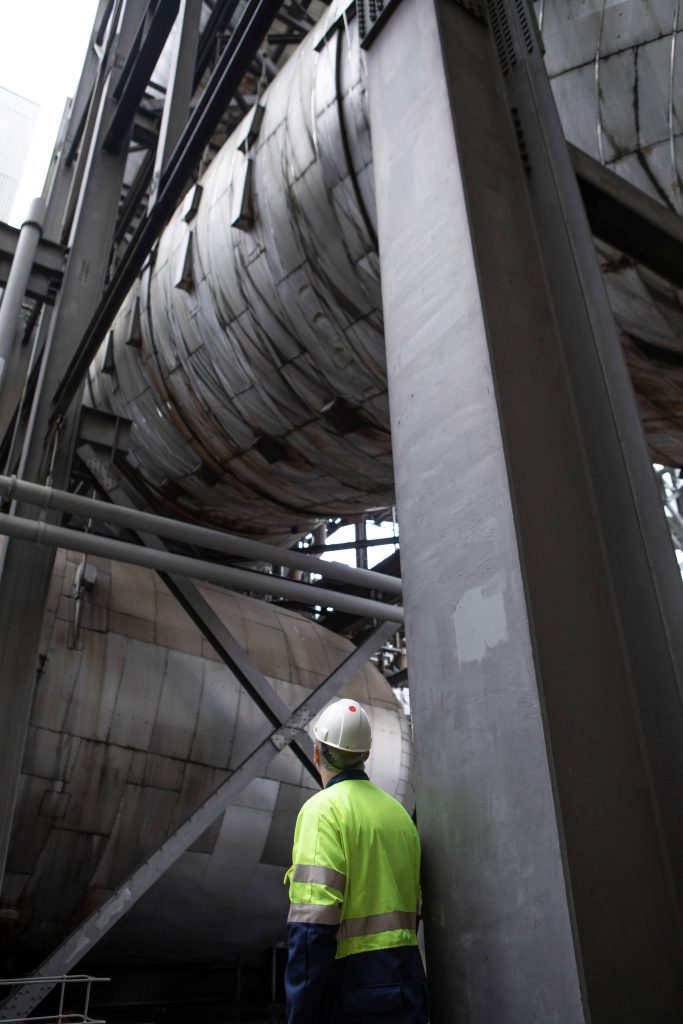
An engineer looks up at flue gas desulphurisation unit (FGD) at Drax Power Station. The massive pipe would transport flue gas from the Drax boilers to the carbon capture and storage (CCS) plant for CO2 removal of between 90-95%. [Click to view/download]
Nigel Adams MP, Minister of State at the Foreign and Commonwealth Office and the Department for International Development, said:
“This is an exciting collaboration between Drax and Mitsubishi Heavy Industries which has the potential to further the development of technology which could help the UK achieve net zero greenhouse gas emissions by 2050 and contribute to the post-Covid economic recovery.”
MHI aims to continue reducing greenhouse gases globally by providing reliable and economically feasible carbon capture technology, supported by research and development activity over 30 years and commercial records around the world.
ENDS
Top image caption: Flue gas desulphurisation unit (FGD) at Drax Power Station. The massive pipe would transport flue gas from the Drax boilers to the carbon capture and storage (CCS) plant for CO2 removal of between 90-95%. [View/download here and from another perspective here.]
Media contacts:
Selina Williams
Drax Group Media Manager
E: selina.williams@drax.com
T: 07912230393
Corporate Communication Department
Mitsubishi Heavy Industries, Ltd.
E: mediacontact_global@mhi.co.jp
T: +81-(0)3-6275-6200
Editor’s Notes
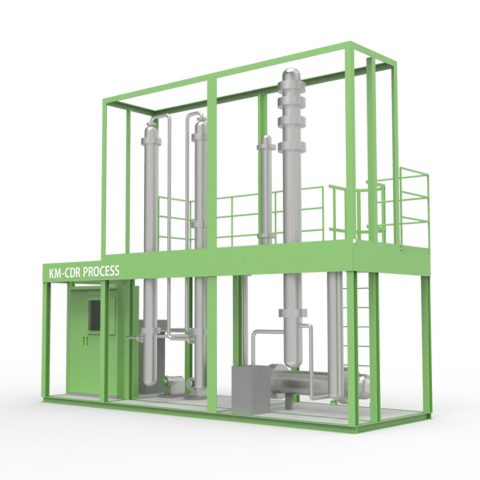
The Kansai Mitsubishi Carbon Dioxide Recovery (KM CDR) Process is installed in 13 commercial plants around the world. Graphic courtesy of MHI. [Click to view/download.]
- MHI, together with Kansai Electric Power Co., Inc. (KEPCO) started the development of the Kansai Mitsubishi Carbon Dioxide Recovery (KM CDR) Process™, a post-combustion carbon capture technology, in 1990. As of June 2020, MHI has delivered a total of 13 commercial plants with the KM CDR Process™, making it a global leader in carbon capture technology deployment. Two more plants are currently under construction.
- During the pilot, MHI and Drax will test two MHI solvents: KS-1™ and KS-21™. KS-1™ is currently being used at all commercial plants that use the KM CDR Process™ and has proven to be a competitive and reliable solvent of choice. MHI, with support of KEPCO, have continued to improve upon the KM CDR Process™ and have recently developed KS-21™. KS-21™ has many promising characteristics including lower volatility and more stability against degradation, and MHI believes that this will result in operational cost savings making the Advanced KM CDR Process™ even more economic for future deployment.
- Drax announced its ambition to be carbon negative by 2030, by using BECCS at scale at its North Yorkshire power station last year.
- It is working with a number of clean tech companies which are pioneering new technologies to decarbonise other sectors and deliver clean growth for the UK.
- Drax is working with Equinor and National Grid Ventures on the Zero Carbon Humber project which aims to deliver the first zero carbon industrial cluster in the UK’s most carbon intensive region using carbon capture and storage technology as well as hydrogen.
About Drax
Drax Group’s purpose is to enable a zero carbon, lower cost energy future and in 2019 announced a world-leading ambition to be carbon negative by 2030.
Its 2,900-strong employees operate across three principal areas of activity – electricity generation, electricity sales to business customers and compressed wood pellet production.
Power generation:
Drax owns and operates a portfolio of flexible, low carbon and renewable electricity generation assets across Britain. The assets include the UK’s largest power station, based at Selby, North Yorkshire, which supplies five percent of the country’s electricity needs.
Having converted two thirds of Drax Power Station to use sustainable biomass instead of coal it has become the UK’s biggest renewable power generator and the largest decarbonisation project in Europe.
Its pumped storage, hydro and energy from waste assets in Scotland include Cruachan Power Station – a flexible pumped storage facility within the hollowed-out mountain Ben Cruachan. It also owns and operates four gas power stations in England.
Customers:
Through its two B2B energy supply brands, Haven Power and Opus Energy, Drax supplies energy to 250,000 businesses across England, Scotland and Wales.
Pellet production:
Drax owns and operates three pellet mills in the US South which manufacture compressed wood pellets (biomass) produced from sustainably managed working forests. These pellet mills supply around 20% of the biomass used by Drax Power Station in North Yorkshire to generate flexible, renewable power for the UK’s homes and businesses.
For more information visit www.drax.com
About Mitsubishi Heavy Industries Group
Mitsubishi Heavy Industries, Ltd. (MHI), headquartered in Tokyo, is one of the world’s leading industrial firms with 80,000 group employees and annual consolidated revenues of around 38 billion U.S. dollars. For more than 130 years, the company has channeled big thinking into innovative and integrated solutions that move the world forward. MHI owns a unique business portfolio covering land, sea, sky and even space. MHI delivers innovative and integrated solutions across a wide range of industries from commercial aviation and transportation to power plants and gas turbines, and from machinery and infrastructure to integrated defense and space systems.
For more information, please visit MHI’s website: www.mhi.com/index.html
For Technology, Trends and Tangents, visit MHI’s new online media SPECTRA: spectra.mhi.com
About Mitsubishi Heavy Industries Engineering, Ltd.
Mitsubishi Heavy Industries Engineering, Ltd. (MHIENG), headquartered in Yokohama, Japan, was founded as an engineering company of the Mitsubishi Heavy Industries Group on January 1, 2018. MHIENG takes over the engineering business of the chemical plants and transportation systems of Mitsubishi Heavy Industries and extends them with newly added environmental facilities. MHIENG has provided numerous Engineering, Procurement and Construction (EPC) projects covering large-scale infrastructure, such as chemical plants, environmental plants, and transportation systems, in many countries and regions around the world. The Company readily meet diversified customer expectations by undertaking all phases from project planning to basic design, detailed design, procurement, manufacture, construction, commissioning, after-sales service, and Operation & Maintenance (O&M), and capital participation in businesses.
For more information, please visit the Company’s website: https://www.mhiengineering.com/









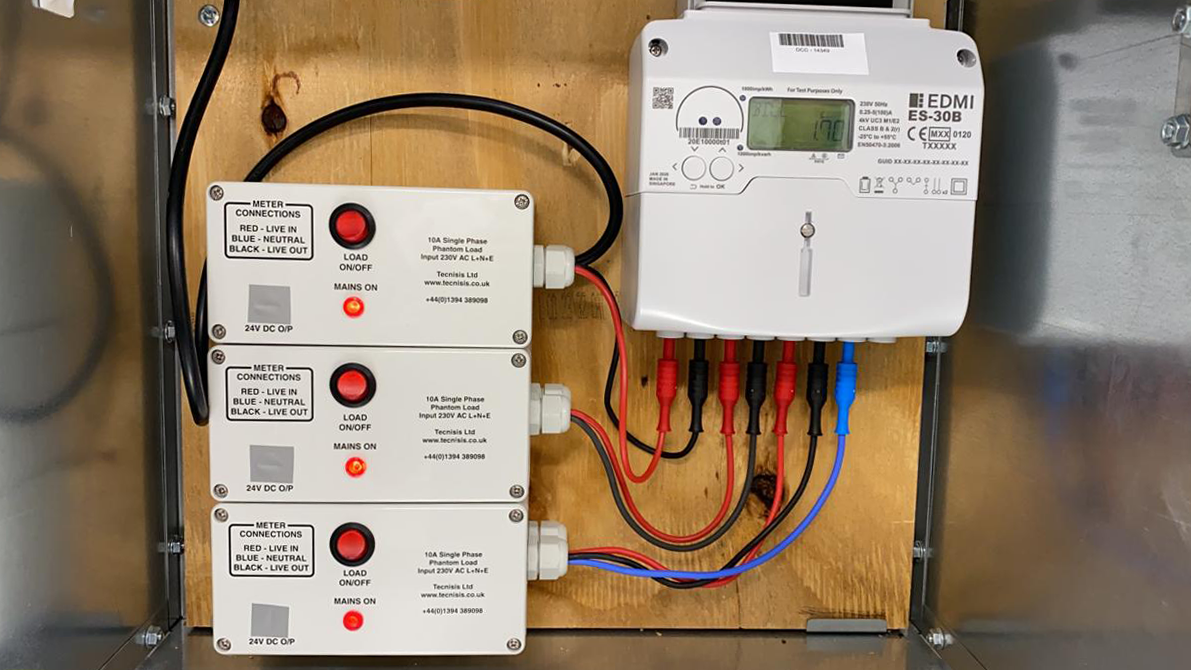
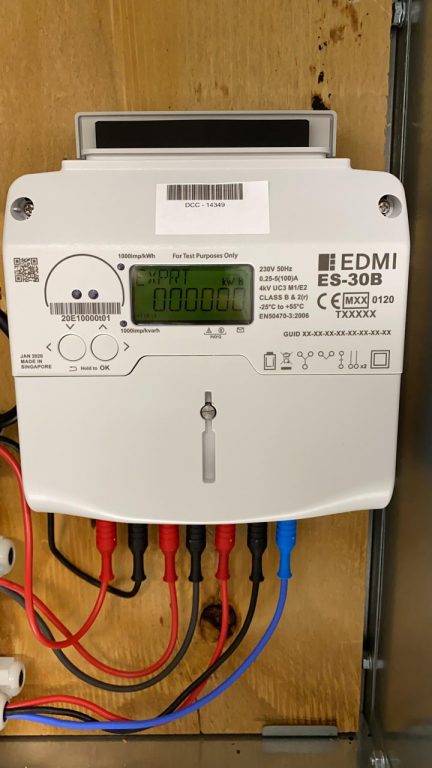 The technology needed to install the newest smart meters in businesses with larger and more complex electricity supplies, such as schools or large commercial premises hasn’t been available, so some of the largest energy users have been unable to benefit from the smartest technologies.
The technology needed to install the newest smart meters in businesses with larger and more complex electricity supplies, such as schools or large commercial premises hasn’t been available, so some of the largest energy users have been unable to benefit from the smartest technologies.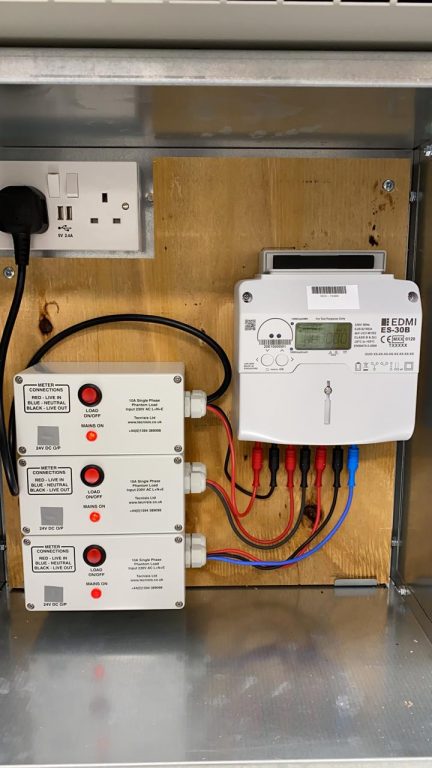 Dan Lambert, Chief Operating Officer for the DCC, said:
Dan Lambert, Chief Operating Officer for the DCC, said:


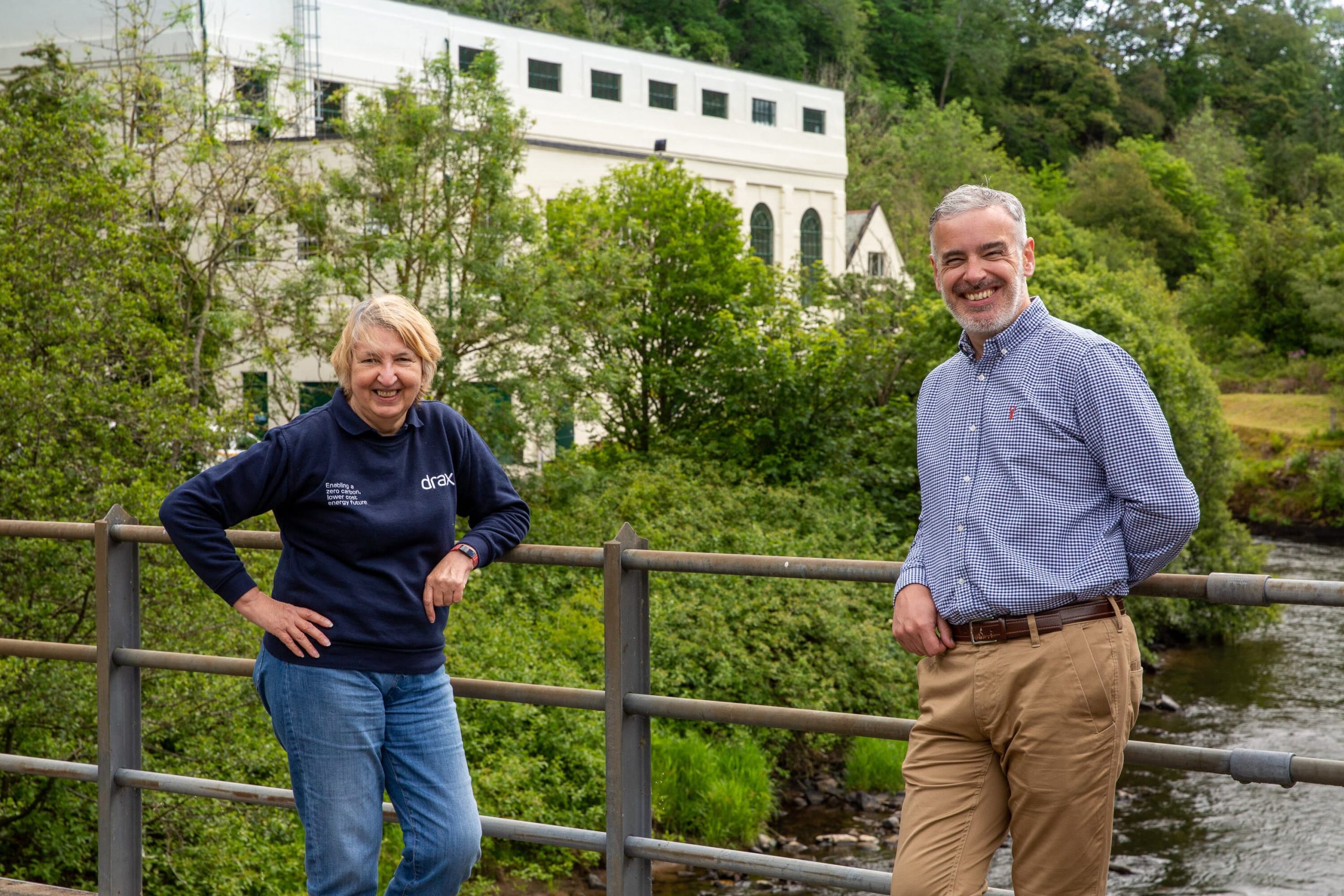
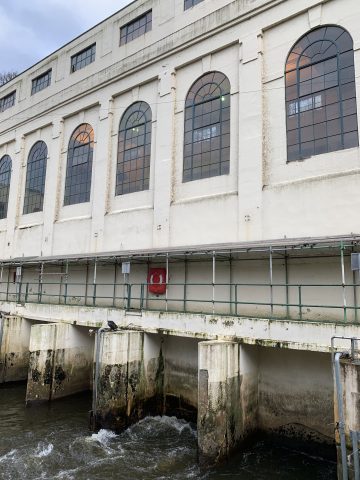

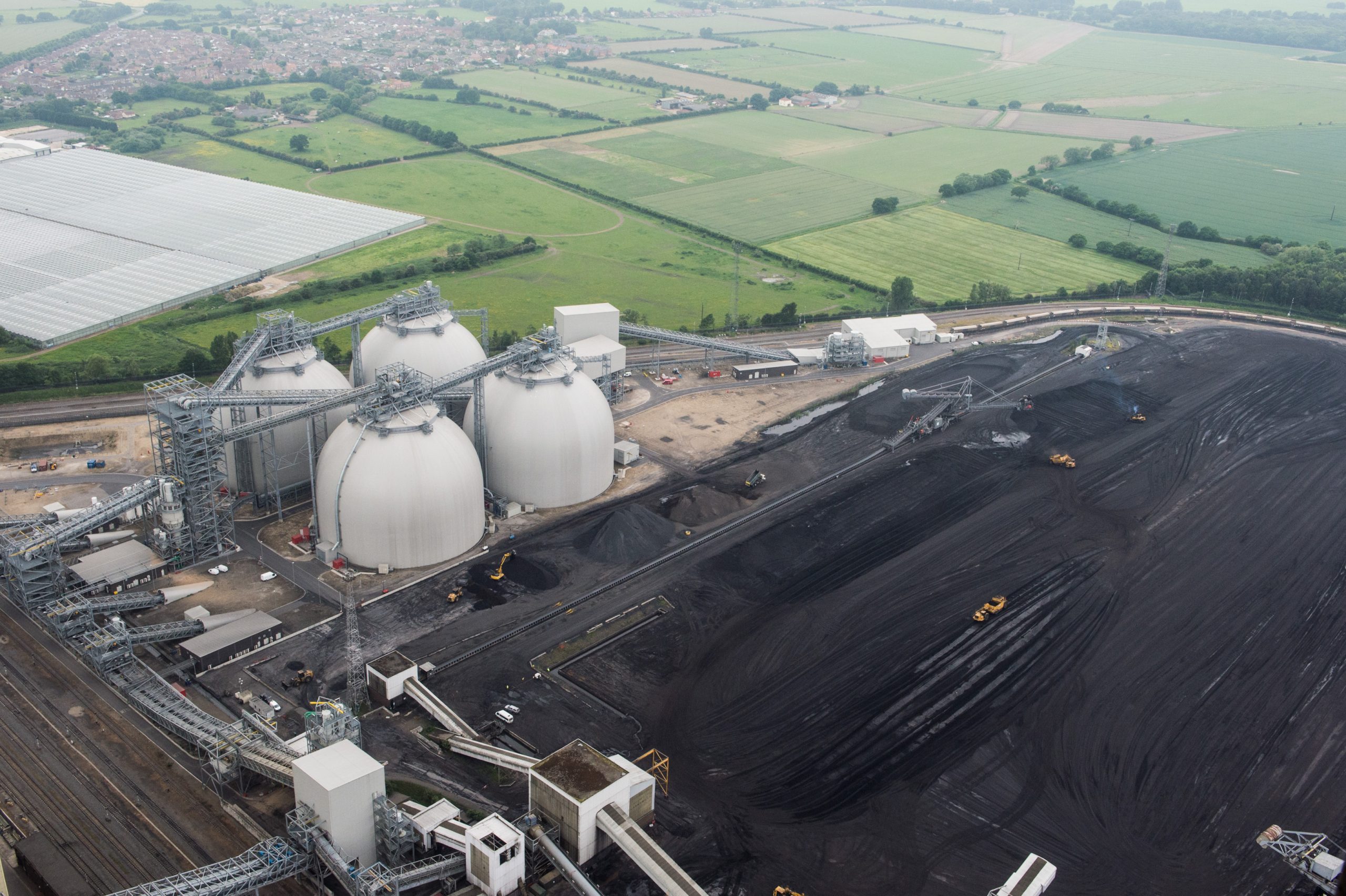

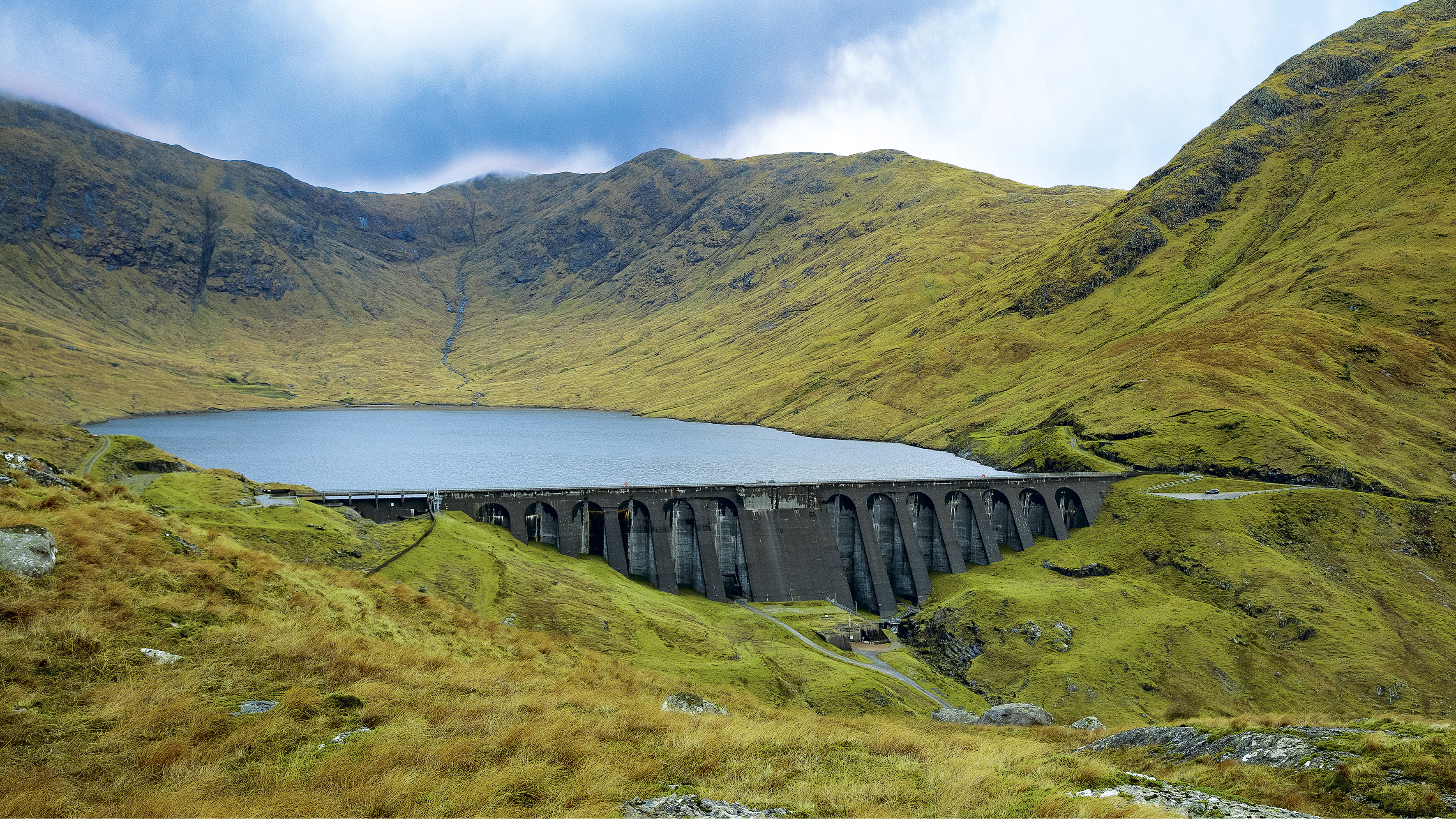
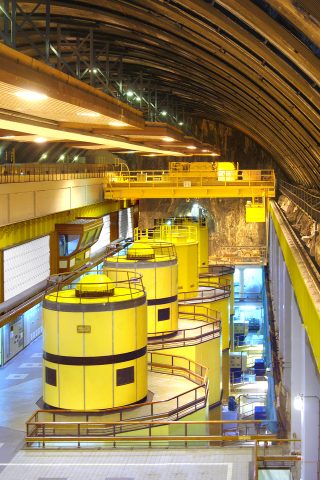 Drax Group has launched the free online resource for students to use from the comfort of their own homes as part of its efforts to support its communities during the lockdown.
Drax Group has launched the free online resource for students to use from the comfort of their own homes as part of its efforts to support its communities during the lockdown.